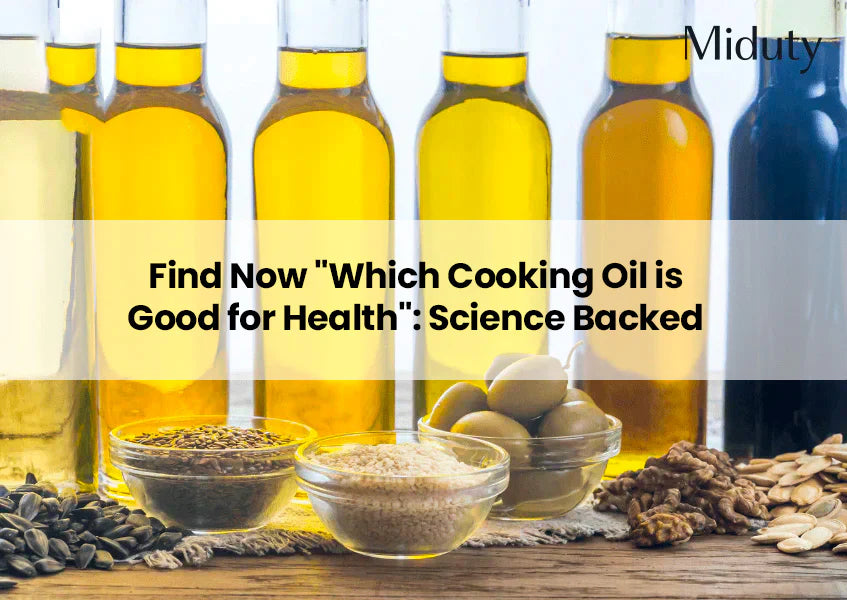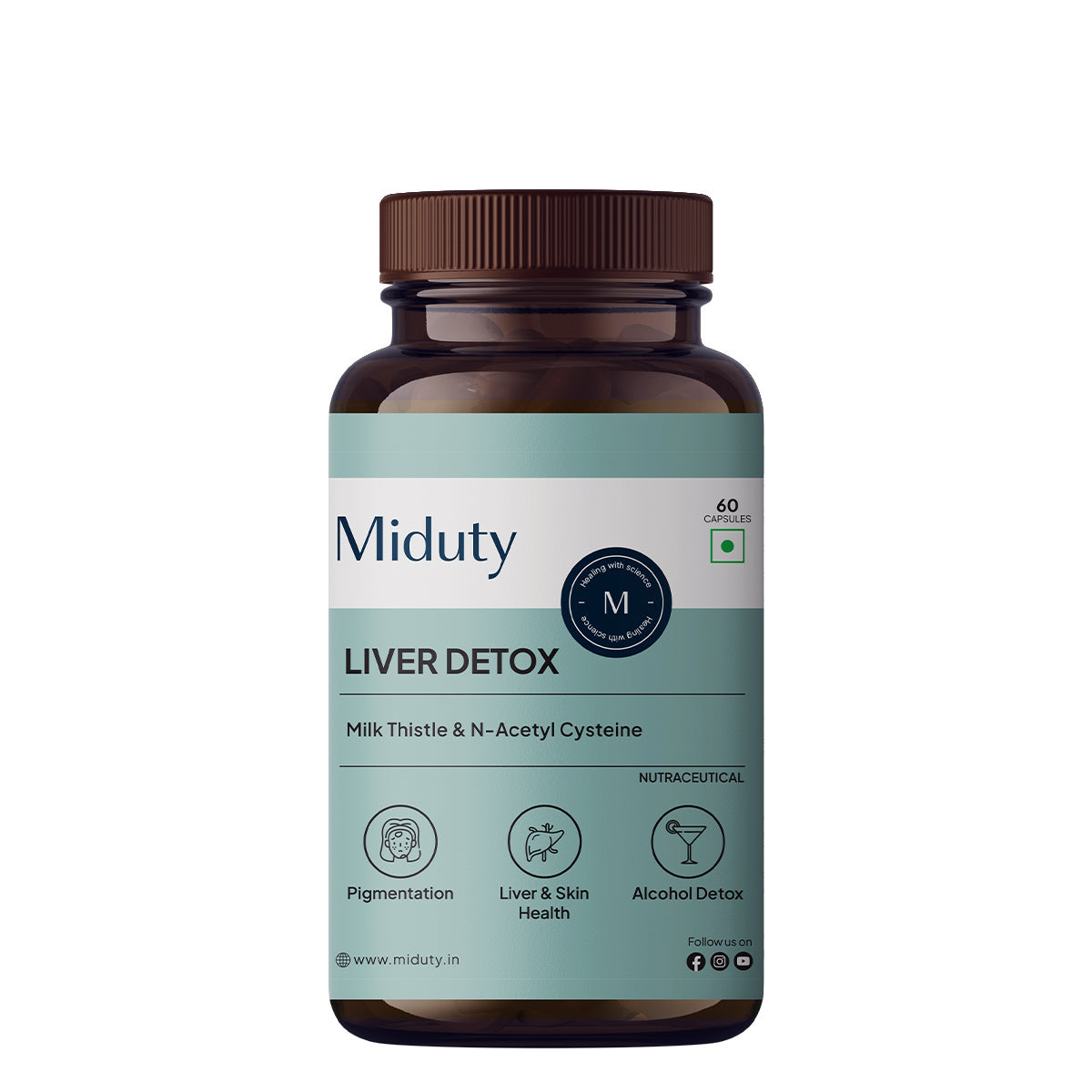
Find Now "Which Cooking Oil is Good for Health": Science Backed
 Share
Share
Best Cooking Oils
Ghee is one of the best cooking oils. Let us first understand what makes an oil good or bad. A good oil is full of vitamins and antioxidants, whereas a bad oil is full of free radicals that can create inflammation in the body.
1. Smoke Point of Oils
Cooking oils should be used according to their smoke points. Higher the smoke point, more heat can they tolerate. The smoke point of an oil is the temperature that oil will start smoking and burning. The problem doesn't only lie in the food tasting bad when the oil is burnt and your kitchen smelling bad, but also in the fact that when the oil is burnt, it starts to oxidize and releases free radicals.
Free radicals can cause a number of health problems including cataracts, heart disease, and even cancer. The smoke point of oil may vary quite a bit depending on the different processes used during extraction.
2. Composition Of The Oil
Oil means fats meaning fatty acids. There are 3 fatty acids Saturated Fatty Acid, Mono Unsaturated and Polyunsaturated fatty acids. An oil has all three. For cooking, we have to look for saturated fats because saturated fats are stable to heat and do not oxidize.
Buy Now Miduty Krill Omega Complex
3. Refined or Unrefined Oil
Refined oils are made by extracting and processing the oils from the seeds, nuts, and vegetables by using heat and chemical processes such as bleaching and deodorization. This removes a lot of the nutrients and antioxidants from the oils, making the oils unhealthy.
Unrefined oils may look cloudy, but this is nothing to worry about as it doesn't affect the quality. These unrefined vegetable oils are a good source of vitamins A, E, K, essential fatty acids and plant sterols which lower LDL cholesterol. Refining and un-refining differentiate if the oil is healthy or unhealthy. For example, unrefined palm oil is healthy and refined is toxic. Same goes with coconut oil and other oils as well. Oils high in saturated fats and are safe to cook with are as follows:
- Ghee is often used in Indian cooking and is made by removing the layer of fat from melted butter. It's also made of saturated and fat and so handles high temperatures well. The difference between butter and ghee is that ghee has a lesser water content as compared to butter so it holds meets or sweet balls better than the butter. Since ghee is gaining popularity, I see it available at the supermarket at a very high price. In India, we have been making ghee from butter, since my grandmother´s time. It is very easy to make ghee from butter. Ghee is even tolerated by the people who cannot tolerate milk fat since you will see in the process that milk fat is removed from the ghee.
- Coconut Oil: It is the absolute best oil, you can use for cooking. The health advantages of coconut oil like Good Digestion, Weight Management, and a healthy heart. If you like the smell and taste of coconut oil, go for virgin coconut oil. If you want to add coconut oil, but does not like the taste go for the lighter version of coconut oil that is expeller pressed.
- Palm Oil: There are two kinds. Palm oil is obtained from fruit palm and palm kernel oil is obtained from the seeds of the palm fruit. It's high in antioxidants and vitamins as well as saturated fat and small amounts of MCT oil. It contains vitamins E, A, and K as well as flavonoids which are antioxidants and CoQ10. It works well as a cooking oil. The unrefined oil is best suited to low temperature cooking and using it for dips and salad dressings. Look out for the colour, if the oil has no colour it means that it has been processed. Unrefined palm oil should have a slightly reddish or golden colour.
- Pastured Animal Fat: Like Beef tallow, Bacon, Goose, and Duck fat.
I have listed the oils, in the order of priority. Meaning the best oils for cooking are Ghee and Coconut oil, followed by palm oil and pastured animal fats.
Dangerous Cooking Oils
Vegetable oils which most people use in their households are dangerous cooking oils. Vegetable oil is the collective name for oils that are obtained from seeds, nuts, and vegetables. Let's take a look at how these oils are made. Nuts, vegetables, and seeds are crushed and pressed mechanically.
Cold-pressed (raw) and virgin oils are oils that are bottled immediately after being crushed and pressed. These oils retain their flavours and the nutrients that the nuts, vegetables, and seeds contain. Some dangerous toxic oils that should be avoided are:
- Oils made from GMO Grains like Soybean oil, Corn Oil etc
- Seeds oil like Cotton Seed Oil, Canola Oil.
- Vegetable oils like Sunflower Oil and Safflower oil
Stay Away From Hydrogenated Oils and Fats
Hydrogenated (hydrogen is added to the oils) which allow them to become solid. This changes the structure of the oil and creates trans fats which are unhealthy and cause health problems like heart disease. Be very careful, if you are buying real butter or margarine. Butters are good for health whereas margarine is extremely harmful. Other reasons for making this toxic fat by the process of hydrogenation is:
- They are cheap substitutes to stable animal fats like ghee and butter.
- Hydrogenated oils are also more stable than saturated products, such as butter.
- The physical properties, such as the melting point, are easily manipulated by changing the degree of saturation
- They have increased tolerance to constant reheating (such as in deep frying).
- They give a more appealing texture to baked products (e.g. a flaky, crispy texture of the pastry), due to the way they mix with flour.
All your confectionary items, cookies, pastries, chips, chicken nuggets, candy bars, fake whip creams have hydrogenated oils added. Look for #transfats in the labels of the store packed food items and you will get an idea.
Best Oils For Your Salads And Dressings

Now we can say that since we use enough oil in cooking, we do not need oils extra that are sensitive to heat in our salads and dressings. But, one must know there are some essential fatty acids. Essential meaning that our body cannot produce, we must include them in the diet.
They are essential for the health of our brains and reduce our risk of heart disease and stroke by regulating the level of cholesterol in our bodies. They also help keep our metabolism, hair, and skin healthy. These fats include the omega-3 and omega-6 fats. Omega 3and omega 6 are unstable at the room temperature and are liquid. Omega 3 is mainly found in the fish. But, some people prefer taking Omega3 supplements. This includes
- Fish oil
- Cod Liver Oil
The difference between fish and cod liver oil is that Fish oil is rich in Omega3 whereas cod liver oil is rich in VitaminD, Vitamin A and have lesser omega3. Since I take an extra vitamin D supplement, I prefer fish oil. Another reason for not taking cod liver oil is that it is extremely rich in Vitamin A and Vitamin A is added in all multivitamins. Lots of other oils contain omega-3s as well to some degree. These include:
- Unheated nut oils: Walnut oil, Hazelnut, Almond and Hemp oil. A newer vegetarian oil called algal oil is also gaining popularity as early research shows it’s easily converted to DHA in the body compared to other vegetarian omega-3s foods.
Amongst this list the top oil that I eat almost every day, unheated
1. Extra Virgin Olive Oil

Although people use this oil for low heating as the smoke point is around 150°C/302°F, I do not cook with my olive oil at all. It's expensive and I do not want to waste a drop of nutrition in it. Here is an Excerpt from Whfoods
Recent studies also show that the phytonutrient content of Extra Virgin Olive Oil—including its phenolic compounds like hydroxytyrosol and its flavonoids like luteolin—are not stable to heat and degrade relatively quickly. For example, when heated in a container over a flame for only 5 minutes at a temperature of 461°F/188°C, one study has shown 50% loss of hydroxytyrosol and 69% loss of luteolin. In short, despite the well-documented thermal stability of EVOO's fat content, EVOO heating can quickly reduce some of its phytonutrient content.
Although on the shelves you will find, olive oil for cooking. First of all cooking olive oil is not a virgin. Virgin means the oil was made by simply pressing olives. It didn't undergo any of the industrial processes. Virgin olive oil also maintains the purity and taste of the olive, though production standards are not as rigid as Extra Virgin Olive Oil. Extra-virgin olive oil is an unrefined oil and the highest-quality olive oil you can buy. Pure Olive Oil or All-purpose cooking olive oil is not as good as Virgin.
2. MCT OIL

MCT stands for medium-chain triglycerides and is a form of saturated fat. You can buy MCT in a concentrated form but it's also found in oils like coconut oil which is the better alternative source, and palm kernel oil, butter, cheese, milk and yoghurt which contain lesser amounts of MCT oil. MCT oil is expensive and one cannot afford to cook with it.
MCT oils are particularly beneficial to who struggle to absorb other fats due to having their gallbladders removed or having a gallbladder infection or for those suffering from other digestive disorders like Crohn's disease and leaky gut syndrome. Because it's easily absorbed and is converted to energy quickly it's also ideal for athletes and those on a ketogenic (low carb, high fat) diet. I buy MCT oil concentrated to include in my pre-workout shake or for the bulletproof coffee for quick morning energy. Add MCT oil slowly in the diet, as it can give you a stomach ache if consumed in large quantity if your body is not used to it.
3. Avocado Oil

The primary fatty acid in the avocado fat is oleic acid, which helps reduce both inflammation and appetite. I am a big fan of eating a variety of healthy foods and rotating them. Because if one has a set of nutrients, other has another set of nutrients. For my salad dressings, I rotate between Avocado Oil, Almond Oil, Sesame oil, walnut oil and Flax oil. Olive oil and MCT oils are always there in my home.
Conclusion
- Oils and fats from a healthy part of our diet.
- The best oils for cooking include Beef Tallow, Unrefined Palm Oil, Ghee, and coconut oil.
- Oils that have a low smoke point are great as salad dressings and in dips.
- Virgin Olive Oil, Avocado Oil, MCT Oil, Sesame Oil, Walnut Oil, Flax Seed Oil, Hemp Seed Oil, Almond Oil should be used in rotation to salads.
- Unrefined, cold-pressed, virgin and extra virgin oils have retained their nutrients throughout the extraction process.
- Stay away from Soybean Oil, Cottonseed oil, Margarine, Sunflower oil and other vegetable and hydrogenated oils.
Sources
Secretion of Bile and the Role of Bile Acids In Digestion
Cholesterol's Importance to the Cell Membrane
Triglycerides: Why do they matter?

